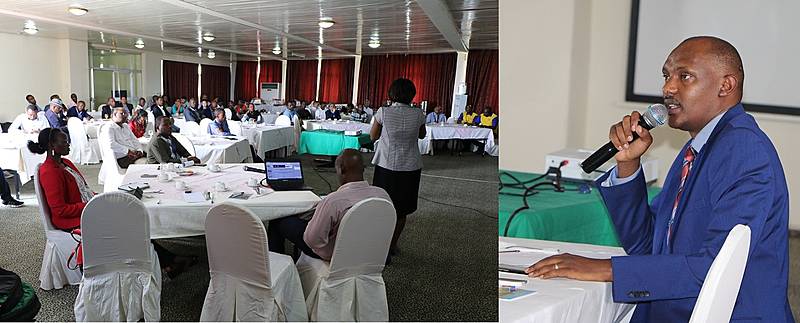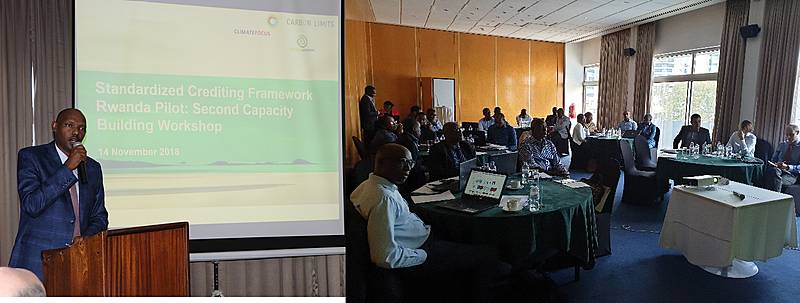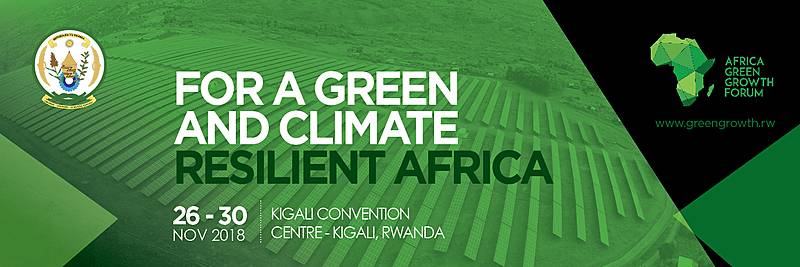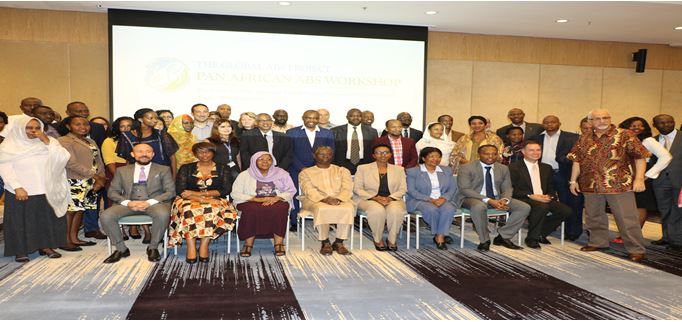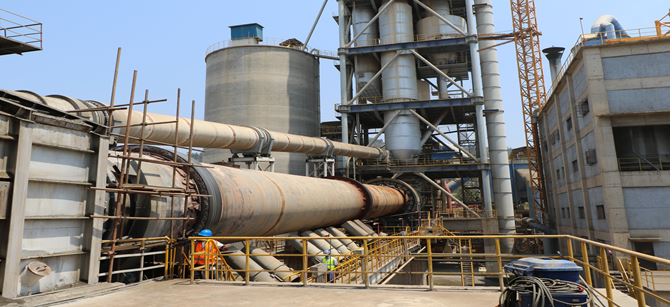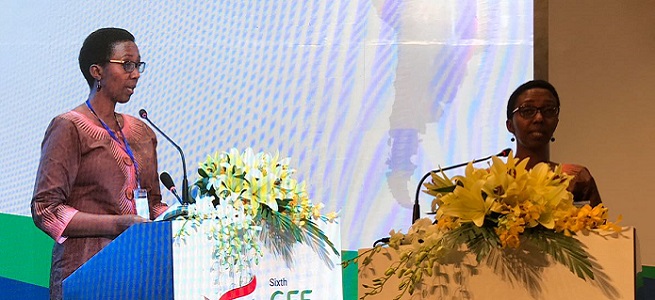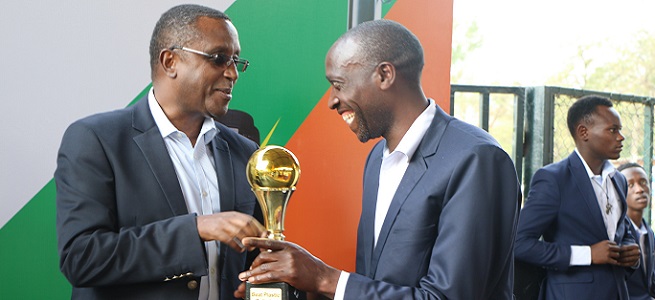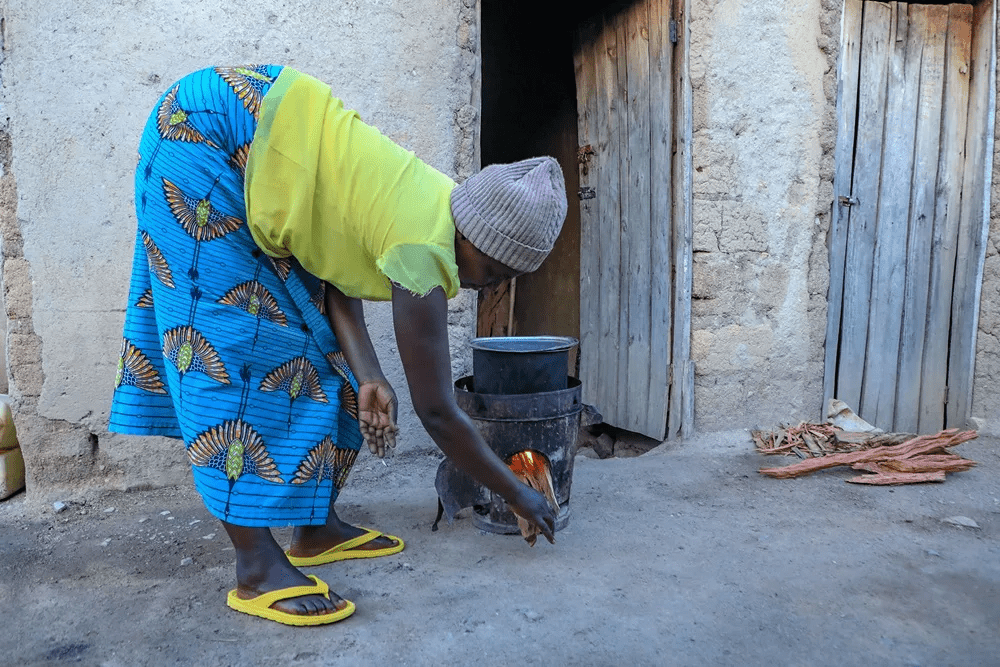
Green Amayaga Project, a solution for women and children
Many decades ago, women and children in Amayaga Region – in Rwanda’s southern province – have been struggling with the lack of firewood and unproductive agriculture, which affected their lives.
Musabyimana Agnes and Muhimpundu Epiphanie – two of the beneficiaries of the Green Amayaga project – are among many more women who were used to spending long hours collecting firewood for cooking.
These women, as well as many more in Amayaga region, are praising the Green Amayaga project for the relief it has provided them from the burden of spending long hours collecting firewood before spending many more in the kitchen. This is thanks to the improved cookstoves provided by the project which are fast in cooking, energy saving and smoke-free.
Green Amayaga Project is being implemented by the Rwanda Environment Management Authority (REMA) in partnership with the Rwanda Forestry Authority (RFA) and the districts of Kamonyi, Ruhango, Nyanza and Gisagara, to afforest degraded ecosystems and restore the natural forests of the four districts, thus promoting biodiversity, fostering ecosystem services, increasing agricultural productivity and reducing the vulnerability of people and ecosystems to the impacts of climate change.
Both Musabyimana and Muhimpudu reside in Nyamiyaga sector of Kamonyi District, one of the four districts within which the project is being implemented.
Due to extensive deforestation and soil erosion, the Amayaga region has suffered, resulting in depleted farmlands. The two women attest that during that time, they struggled with the lack of firewood and unproductive agriculture, which affected their daily lives.
“We used to plant different crops, but whenever it rained, soil erosion would take away our crops and fertilizers, causing us to lose everything. Later on, the Green Amayaga project arrived and established ditches in our farmlands. Today, things have changed, and we can harvest more than we could before the project’s arrival,” says Muhimpundu.
Among the other interventions made by the project in the community, the distribution of 21,000 improved cookstoves stands out.
This effort aims to reduce and prevent deforestation, and help the community use less firewood.
The initiative has not only discouraged forest degradation but also lifted the burden of the community. They used to struggle with the lack of firewood for cooking.
“Before, I had to spend Rwf500 to buy firewood to cook beans only. However, with the Green Amayaga Project stove, the Rwf500 firewood can last almost three days of cooking day and night.” Musabyimana Agnes recalled.
Children were also relieved
In many parts of Rwanda, women and children are responsible for collecting firewood and cooking, as the community relies on firewood for cooking.
Musabyimana recognizes the positive impact of the project on their lives, as they no longer struggle with firewood issues. This struggle had previously affected their children to the point of missing classes due to the long walks required to find firewood.
“Our children can now attend classes daily as they are no longer required to spend hours and collecting firewood. The cookstoves we were provided with are energy saving and are very fast in cooking. We are now able to serve food on time and children are so happy for that” Musabyimana added.
The Green Amayaga Project is a six-year initiative, launched in October 2020, aiming at promoting biodiversity, foster ecosystem services, increase agricultural productivity and reduce the vulnerability of people and ecosystems to the adverse effects of climate change.
So far, after three years of implementation, the project has managed to remarkably achieve various things including 20 cooking LPGs distributed to schools, 2534 livestock given to households, restoration of Kibilizi-Muyira forest among others.
In addition to these, 3130 people, of which 1512 are women, have been trained on different subject matters in order to ensure project sustainability by building community capacity towards climate change and it effects.
Topics
More posts
Rwanda hosts the Global Environment Facility (GEF) Eastern Africa Constituency Meeting
Kigali, 22 November, 2018, Following the 6th GEF Assembly and 54th Council Meeting held in Danang, Vietnam in June 2018, the GEF focal points of the…
Top managers of industries in Prime Economic zone and Special Economic zone were briefed on new law on Environment
Kigali, 16 November, 2018 - In view of elaborating the new law on environment, LAW N°48/2018 OF 13/08/2018 LAW ON ENVIRONMENT, Rwanda Environment…
Rwanda pilots the second phase of Standardized Crediting Framework concept
Kigali, 15 November, 2018- From 14 to 15 November, 2018, REMA and the World Bank Carbon Initiative for Development (Ci-Dev) hosted a workshop to…
Rwanda to host inaugural Africa Green Growth Forum
Rwanda will host the first ever Africa Green Growth Forum, gathering more than 1,000 investors, policy makers and financial specialists from across…
Rwanda hosts Pan African Workshop on Access and Benefit Sharing of Genetic Resources
Rwanda from 28–30 August 2018 hosts a Pan African Workshop on Access and Benefit Sharing of Genetic Resources (ABS). The workshop brings together…
Rwanda incinerates harmful oils used in transformers
The Government of Rwanda through the Rwanda Environment Management Authority (REMA) started the incineration of Polychlorinated Biphenyls (PCBs) oil -…
Rwanda statement at the 6th GEF Assembly in Da Nang, Viet Nam
STATEMENT BY HEAD OF DELEGATION FROM RWANDA - COLETHA U. RUHAMYA - DIRECTOR GENERAL OF RWANDA ENVIRONMENT MANAGEMENT AUTHORITY (REMA) AT THE 6TH…
World Environment Day: winners of environmental school competitions awarded
Rwanda Environment Management Authority (REMA) has awarded winners of this year’s environmental school competitions organized in the build up to the…
Umunsi Mpuzamahanga w’Ibidukikije: Igihe kirageze ngo tuzirikane ububi bwa plastiki mu mibereho yacu
Kuri uyu wa 05 Kamena, u Rwanda rwifatanyije n’isi yose mu kwizihiza Umunsi Mpuzamahanga w’Ibidukikije, uyu ukaba ari umwanya wo kuganira ku bibazo…

